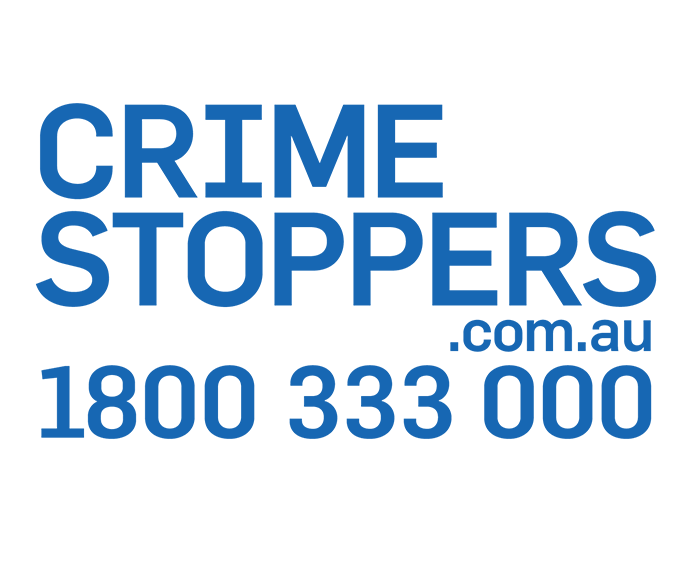Media Releases
Crime Stoppers South Australia plays an active role in media, promoting unsolved crimes and encouraging people to provide information anonymously with the option of a reward.
Make sure to visit here regularly for our latest news and information.
To be kept up to date follow us today
Follow us on YouTube, Facebook and Twitter to watch clips of our latest campaigns and feature crimes.
Online Fraud and Scams
Posted on 18/05/2020
Crime Stoppers SA and Police Credit Union have joined forces to help protect South Australians from falling victim to an online scam. In 2017, nearly 3000 Australians fell victim to an online scam, and our campaign has been designed to give you the understanding and tips of what to do to stay safe online and avoid falling prey to the scammers.
From spyware to dodgy online merchants, the threat of online fraud is real – do remember that you are always the best line of defence.
What are the different types of online fraud?
Internet banking fraud – committed using online technology to illegally remove money from, or transfer it to, a different bank account. Types of internet banking fraud include phishing and mule recruitment, and can happen through a smartphone, tablet and other mobile devices.
Mobile banking – Using a computer, tablet or smartphone is so convenient and banks protect your accounts with sophisticated software systems, so criminals focus on customers directly, tricking victims into revealing confidential information. Consider the switch from paper statements to online statements, because identity theft is harder without statements going into mailboxes. Financial institutions never request someone to send their bank details or request someone to log into their account via email. Think about using a digital wallet (such as Google Pay and Apple Pay) where you can payWave transactions and verify with fingerprints – and remember that a banking app is a great way to regularly keeptrack of transactions.
Phishing – involves a form of spam to fraudulently gain access to people’s internet banking details, and usually are made to appear as having come from a bank and encourage unsuspecting victims to provide their personal banking details. Typically, a phishing email has a link, which when clicked will download a program that captures keyboard strokes – including login details – and sends them to a third party.
Mule recruitment – an attempt to get a person to receive stolen funds using his or her bank account, and then transfer those funds to criminals overseas. An approach could be fraudulent job and employment emails sent to random email addresses, in the hope of involving an unsuspecting victim in the criminal activity.
Shopping and auction site fraud – is where a person is tricked into not using a secure payment service because of advice from a seller. This can involve being sent purported links to banking services in an email, which actually leads to fraudulent sites or prompting the download of a ‘Trojan’ virus or ‘key logging’ program.
Spam – unsolicited commercial messages sent via email, SMS, MMS and other, similar electronic messaging media which try and persuade someone to buy a product or service or visit a website to make a purchase. They can also trick you into divulging bank account or credit card details.
Investment scams – People should seek independent advice from professionals before sending funds offshore to overseas investments and undertake due diligence.
How can you combat online fraud?
The key to combating online fraud is knowing what threats exist and taking easy steps to beat them.
To prevent online fraud:
- Keep current with your software and virus protection
- Create strong passwords
- Ignore emails from senders you don’t know
- Use your pop-up blocker
- Download files only from sites or persons that you know and trust
- Sign up for email/SMS “transaction alerts” from your bank to keep track of your purchases
- Make sure your financial institution has your up-to-date contact details
- Mobile technology is a common way for people to transact online, and people need to stay safe by:
- Protecting a device both physically and with passwords/PIN codes
- Never storing sensitive account information on mobile devices
- Being aware of surroundings— and not reading sensitive details in public
- Scammers pretend to be from trusted companies or government departments – they email you fake bills or want remote access to your computer to ‘fix the problem’ – so never allow remote access to your computer systems and never access your online banking when on the phone to a stranger.
- If you’re contacted unexpectedly from a government agency or business, always consider that it may be a scam. If you’re unsure whether a call or email is genuine, verify the identity of the contact through an independent source, such as a phone book or online search. Don’t use the contact details provided by the caller or in the message they sent to you.
What should you do if you think you’ve been scammed?
If you’ve sent money or shared your banking or credit card details, contact your financial institution immediately. It may be able to stop or reverse a transaction or close your account.
Go to https://www.scamwatch.gov.au/get-help/where-to-get-help for some other useful tips.
If you want to report a scam, go to https://www.scamwatch.gov.au/
Check out our short video series about how to stay safe online and what to do if you’ve been scammed:
YOU MAY ALSO LIKE TO READ

Serious criminal trespass – Aberfoyle Park
18/07/24 | Article, Media Releases, Video
Can you help identify a man wanted for a serious criminal trespass at Aberfoyle Park in March 2024? At 5:15…

Alison de Kleuver appointed to Crime Stoppers SA Board
18/07/24 | Article, Media Releases
Crime Stoppers South Australia is pleased to announce the appointment of Alison de Kleuver as a new Board member, bringing…
